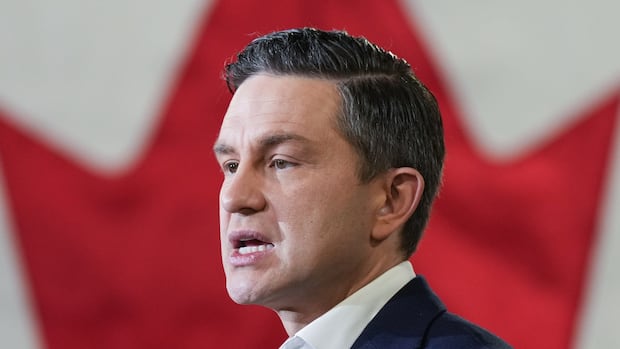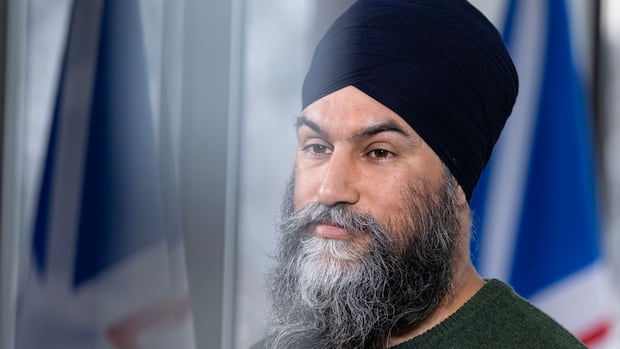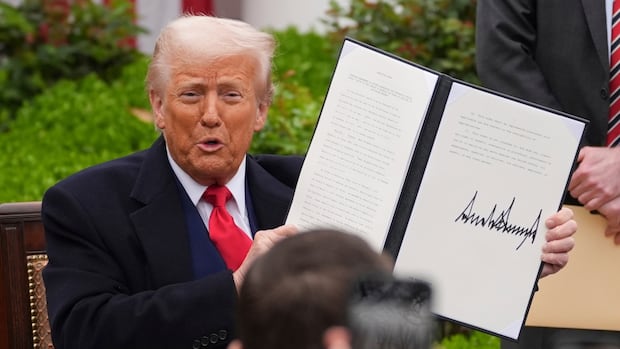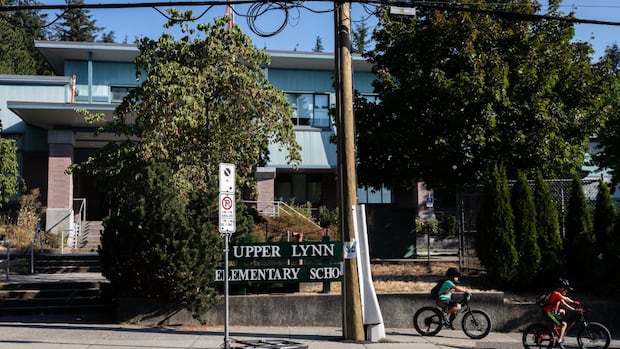Long-simmering tensions within the Conservative movement are bursting out into the federal election, experts say — undercutting Conservative Leader Pierre Poilievre's efforts to present himself as a unifier who can take on U.S. President Donald Trump.
Those tensions materialized again after ex-Reform Party leader Preston Manning and Alberta Premier Danielle Smith, both Western-populist-styled Conservatives, made a series of controversial statements that raised the ire of former Stephen Harper cabinet ministers James Moore and Jason Kenney.
And the antagonism between the mainstream and populist factions of the party would have remained in the shadows, experts say, had Poilievre maintained his 25-point lead over the Liberals. But now, blood is in the water, and the sharks are circling.
Experts say the fissure among the Conservatives has long existed and — while paved over for a while during the Harper years — may be ready to crack wide open.
"This didn't just pop up this year in response to Trump and the tariffs," Lisa Young, a political science professor at the University of Calgary, told CBC News. "There is a fairly profound divide within the Conservative movement."
Smith stokes fireThe recent discord bubbled over after Smith met with Liberal Leader and Prime Minister Mark Carney on March 20. After their meeting, she issued a public list of demands that she said must be addressed within the first six months of the April 28 election result in order "to avoid an unprecedented national unity crisis."
One of those demands was to rule out the use of Alberta's oil exports to the U.S. as a bargaining chip in a trade war with Canada's southern neighbours.
Having raised the spectre of a national unity crisis, Smith stoked the fire the following day by writing a letter to Quebec Premier François Legault asking to meet and discuss asserting provincial sovereignty.
"I see an opportunity before us, as the democratically elected leaders of Alberta and Quebec, to chart a path toward a new era in Canadian federalism," Smith said in her March 21 letter to Legault.
When Trump exempted Canada from additional tariffs on April 2, Smith issued a public statement calling the U.S. president's move "an important win for Canada and Alberta," despite 10 per cent tariffs remaining on energy exports like Alberta oil.
'Not a good day for Canada,' Moore saysSmith's exuberance over the tariff announcement did not sit well with two members of former prime minister Harper's cabinet, who pointed out that Quebec and Ontario are still facing 25 per cent tariffs on steel and aluminum, and automotive exports to the U.S.
"With respect, Premier, this is not a good day for Canada or the world," James Moore said in a social media post. "When Alberta is economically attacked, it is bad for Canada.
"Thousands of Canadians in the auto, steel, aluminum and other industries may be losing their jobs. This is not a 'BIG WIN.' Canadians stand together."
Describing the tariffs on auto imports as a "devastating blow to hundreds of thousands of good, honest, hard-working Canadians," Jason Kenney, also a former Alberta premier, told Ontarians in a social media post that "the vast majority of Albertans stand proudly with you, and have your back."
 Former industry minister James Moore and defence minister Jason Kenney are shown applauding Canadian astronauts Jeremy Hansen and David Saint-Jacques in the House of Commons in June 2015. (Sean Kilpatrick/The Canadian Press)
Former industry minister James Moore and defence minister Jason Kenney are shown applauding Canadian astronauts Jeremy Hansen and David Saint-Jacques in the House of Commons in June 2015. (Sean Kilpatrick/The Canadian Press)Kenney even went on to challenge Smith's position on energy, saying that "everything should be on the table" response-wise in order to "defend all industries and jobs" from U.S. trade action.
Earlier this week, Preston Manning, formerly of the Reform Party, wrote a column in the Globe and Mail in which he said "large numbers of Westerners simply will not stand for another four years of Liberal government."
"Voters, particularly in central and Atlantic Canada, need to recognize that a vote for the Carney Liberals is a vote for Western secession — a vote for the breakup of Canada as we know it," he said.
On Thursday, Poilievre distanced himself from his former boss's views, giving a simple "no" when asked if he agreed with the opinion piece.
"We need to unite the country. We need to bring all Canadians together in a spirit of common ground," he said during a campaign stop in Kingston, Ont.
Cutting the legs out from under PoilievreChristopher Cochrane, a political science associate professor at the University of Toronto, told CBC News that Poilievre has made efforts to present himself as someone who can defend Canada from the Trump administration. Yet, though the leader has disavowed Manning's comments, and pitched national unity projects like east-west trade routes, his fellow conservatives' statements are "cutting the legs out from under him."
"[Manning] has just exemplified what has been the real challenge for the Conservatives, which is: Canadians aren't really sure that there isn't a significant undercurrent within the Conservative Party that actually supports Canada becoming the 51st state," Cochrane said.
"I don't think that's a viable path forward within the Conservative Party, and they are going to have to figure out how they deal with it."
The Conservatives' path to electoral success is much harder than it is for the Liberals because their voter base is concentrated in Alberta and Saskatchewan, while the Liberals have a more evenly distributed level of support across the country.
Issues with a large tentExperts say Smith's and Manning's recent public statements may be born out of a frustration with trying to pull a broad coalition of progressive and populist conservatives.
"Erecting a tent that's big enough to encompass centrist folks in the Toronto suburbs and people who would otherwise vote for the People's Party is actually an incredibly challenging task," Young said.
Melanee Thomas, a political science professor at the University of Calgary, says some Conservative politicians are just not sure how to maintain cohesion inside the base if they are not "keeping the 'Ottawa hates you' nerve raw."
"When things are going well, you don't have people like Kenney and Moore coming out," she said. "So if this is about the fracturing starting to come, I feel bad for Mr. Poilievre, I don't think there's a way to stop it."
Young says that no matter the cause of the fissure in the Conservative movement, it's making Poilievre's job much more difficult.
"The requirement for somebody who wants to become prime minister of Canada is that you can't tolerate provincial premiers threatening secession," she told CBC Radio's The House in an interview airing Saturday.
"There are inherent divisions within the Conservative movement around this, and the more that Danielle Smith makes Pierre Poilievre's life difficult politically, the deeper those divisions will become."













